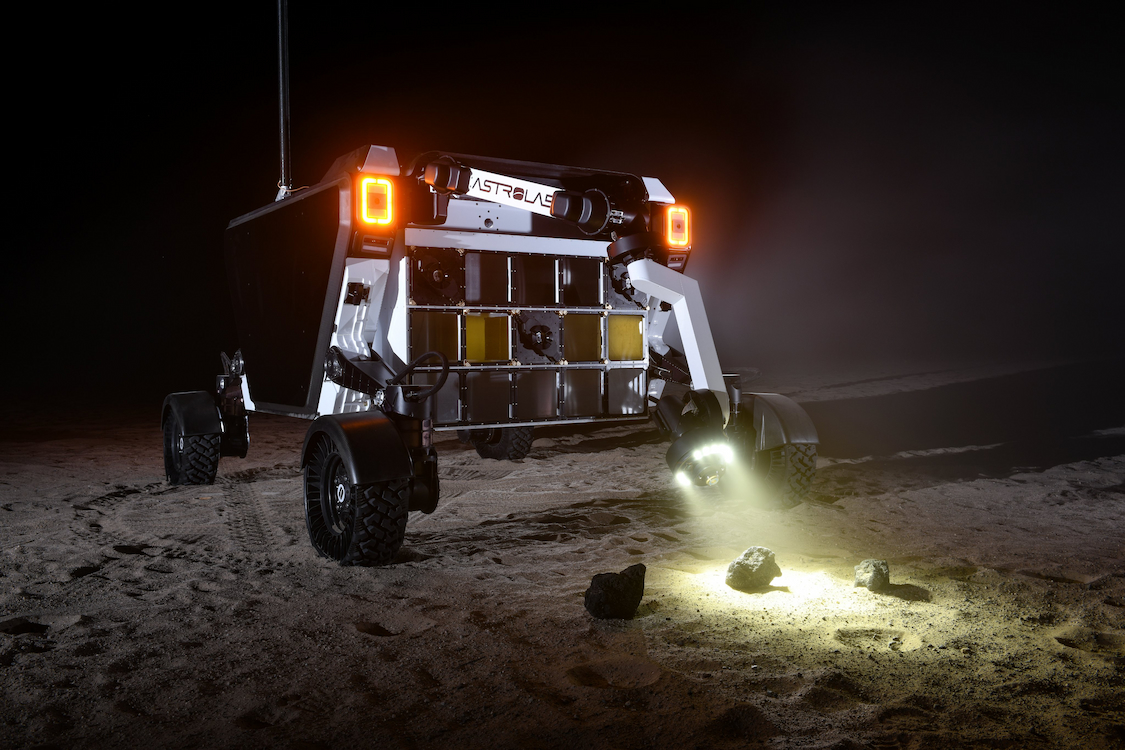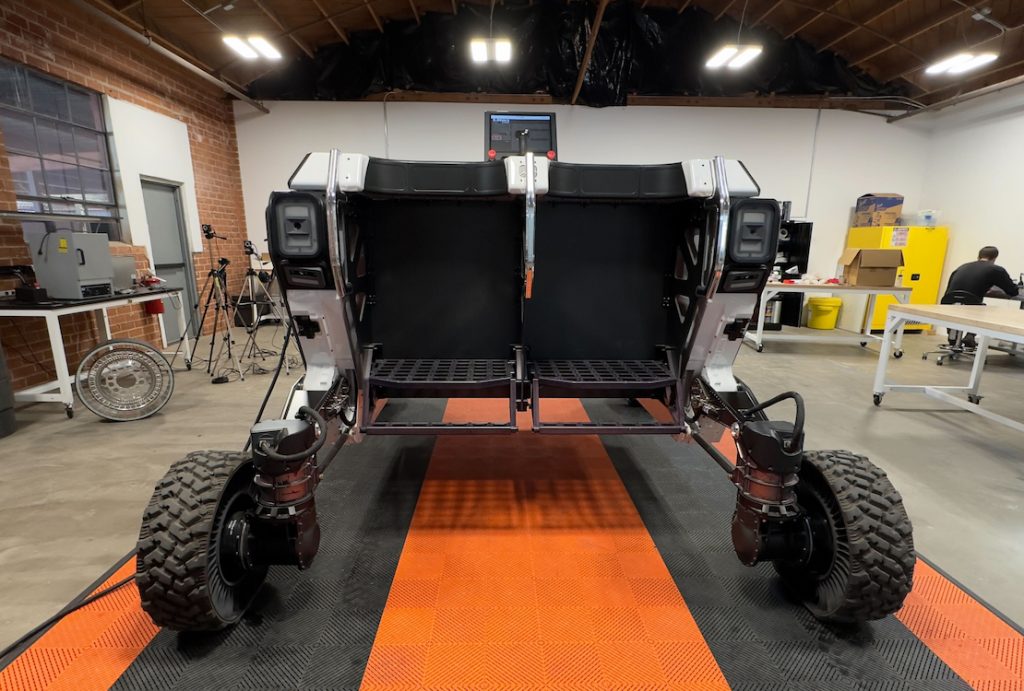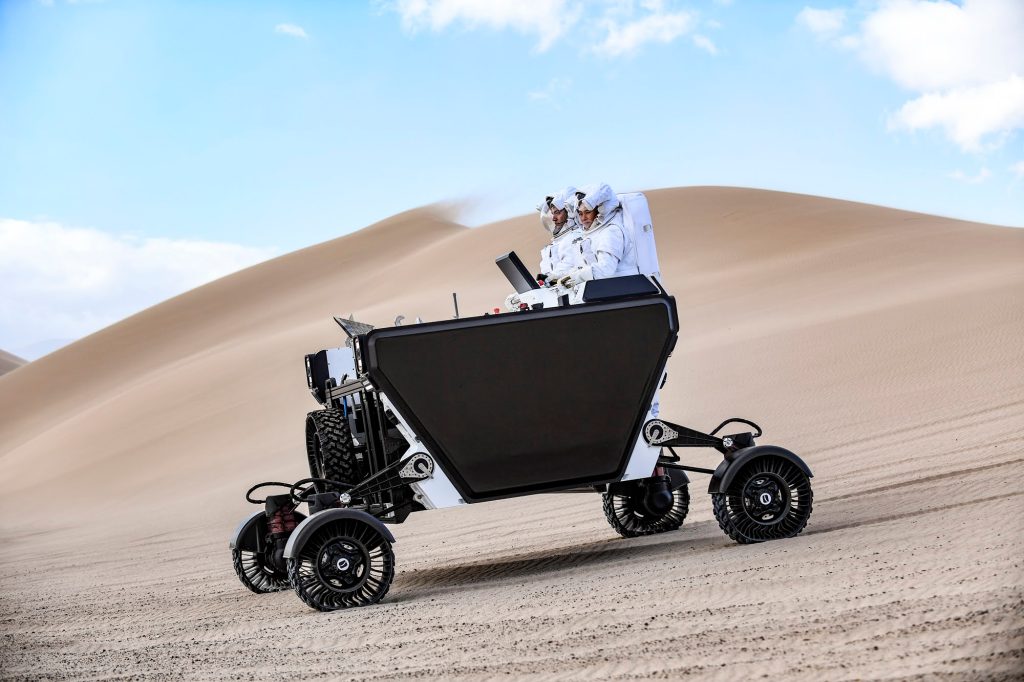
Venturi Astrolab, the developer of the Flexible Logistics and Exploration (FLEX) rover, has inked an agreement with SpaceX that is set to propel its innovative rover to the lunar surface aboard a Starship flight. This ambitious mission, scheduled for a potential launch in mid-2026, marks SpaceX’s first-ever commercial cargo contract for lunar delivery.
SpaceX’s Starship is still being developed in South Texas. The rocket’s second integrated test flight is currently expected to occur no earlier than September.
The FLEX rover, aptly named for its flexibility, aims to revolutionize extraterrestrial exploration with its modular design and multifunctional capabilities. Powered by lithium-ion batteries charged through side-mounted solar panels, the rover is approximately the size of a small pickup truck. However, its true power lies in its adaptability, according to the company.
Unlike conventional rovers like NASA’s Perseverance and Curiosity Mars rovers, which are equipped with fixed instruments for their entire mission lifespan, FLEX boasts an array of modular payload interfaces capable of accommodating diverse cargo and missions.

“FLEX is the kind of multi-mode, modular payload transport that will help establish a permanent lunar outpost on the Moon at a lower cost and in less time than previously envisioned,” said Jaret Matthews, the founder and CEO of Venturi Astrolab.
The rover is designed to serve as both a cargo transporter and an unpressurized astronaut vehicle. Its attachable transport platform can carry up to two standing astronauts, enabling spacesuited explorers to navigate the lunar landscape and transport tools, samples, and equipment as needed.

For the first lunar mission, FLEX is expected to disembark from a garage in Starship and descend to the lunar surface using Starship’s elevator. Once there, the rover would leverage its capabilities to mobilize and assemble payload containers brought down with it.
While the specific customers for this mission remain undisclosed, Astrolab anticipates unveiling further details in the coming months. The company hopes its design focus on mobility, navigation, communication, and power solutions allow customers to focus on their specific goals without being encumbered by the rover’s basic functionalities.
The company also has its sights on NASA’s Lunar Terrain Vehicle (LTV) competition. As the U.S. space agency seeks proposals for the LTV, Astrolab’s adaptable and versatile design could put the company in an advantageous position.
Expected to aid astronauts on lunar missions while offering remote robotic control between human landings, NASA’s LTV contract would align well with FLEX’s publicized capabilities. With more than 20 full time employees and strategic partnerships, Astrolab sees themselves as well-positioned to compete against major aerospace players in the LTV arena.
“Our Astrolab team has created much more than a rover for use on the Moon or Mars,” Matthews said in a company statement earlier this year. “We’ve created a logistics system that can accommodate a wide variety of cargo. We expect that this approach will help establish a permanent lunar outpost on the Moon at a lower cost and in less time than previously envisioned. We are delighted that this contract with SpaceX will allow Astrolab to demonstrate the advantages of the FLEX rover and its modular payload system.”
FTC: We use income earning auto affiliate links. More.

Comments